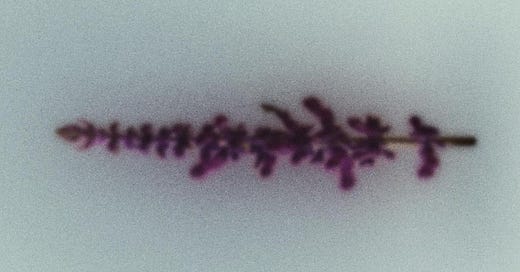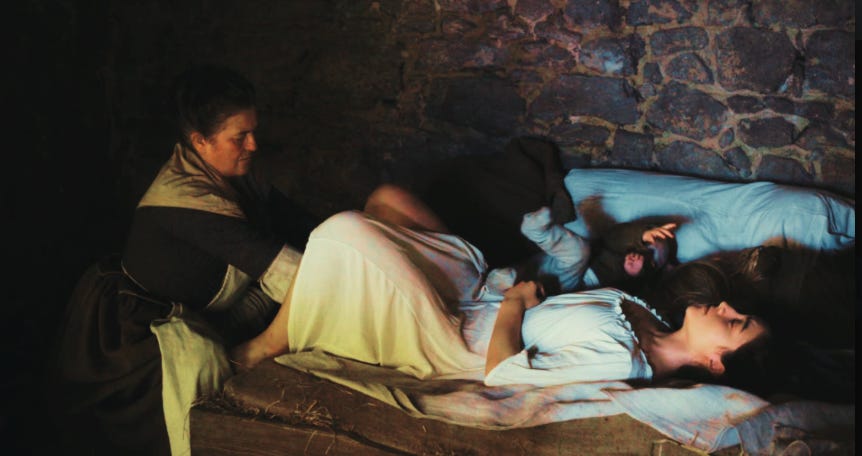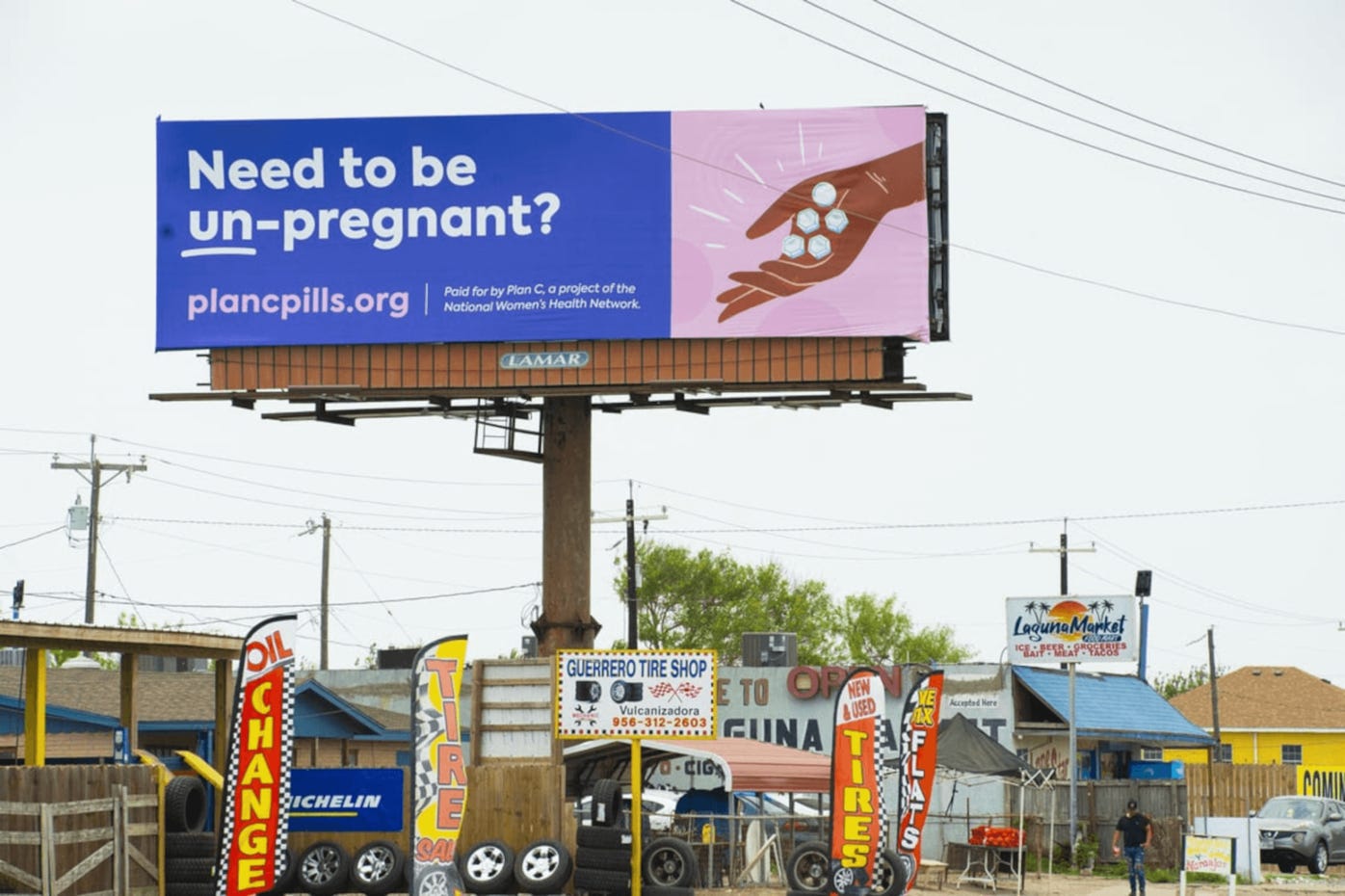Next month, I go to the United States where I will be meeting with comrades in NYC and hopefully Philadelphia to offer solidarity and conduct a learning exchange on abortion. This coincides with work I’m doing with friend, activist and academic Dr Lorraine Grimes (Maynooth University) where we are attempting to build on some of the collections held in the Digital Repository of Ireland and explore more broadly, the experiences of abortion - from activism to procurement across the island of Ireland.
With my move to Dublin, my abortion activism has definitely taken a back-seat (as I try to develop a personal life!) and I feel my role for the moment is one of mentorship and support to younger and newer activists coming through.
I will say though, since the decriminalisation of abortion in the north - and latterly, since Repeal in the south - I’ve been aghast at the co-option of the abortion movement into government, NGOs, and people building careers out of what I sincerely believe to be care-work. By this, I do not mean to glorify unpaid labour (as most/all care work is!) and absolutely I agree with the fuck you, pay me war cry. But the absorption of the movement into institutional bodies is piecemeal, and it softens the razor awareness we must always keep sharp. Being invited into the gilded rooms filled with slippery-tongued politicians is so fucking dangerous because you’ll blink and become just like them.
I return time and time again to this excellent piece by Rebecca Traister after the fall of Roe where she details the failure of American liberals to heed the warnings of the ‘hysterical’ activists trying to keep abortion rights and access to the fore. The same tired rhetoric of abortion being a ‘single strand issue’ became a faux truth. We must always keep our razor sharp vigilance. The moment we become complacent is the moment those in power snatch our rights and access away.
While I’ve stepped back from activism, my research interest in abortion still remains strong and I feel that in this time of my life, I serve the movement well by developing archival resources for folks in the future to have access to, and writing about the history and activisms of the past and present.
Key to my research interests now is unearthing and recording experiences of abortion providers on the island of Ireland. Hopefully some of this work will make it into the book I’m working on with Lorraine. I’m particularly interested in the presence of abortion in folk songs and storytelling through Irish generations, as well as finding out about abortion ‘cures’ and herbal recipes used to bring about the ending of a pregnancy.
This development in my research interests comes from having had time to step away from the manic activism of challenging politicians, assisting folks with their abortion pathways, fundraising and busting stigma. Now that abortion has been decriminalised in Northern Ireland, with relative access available, I’ve had time to ruminate on how the paternalism of our existing healthcare infrastructures remove the care-work aspect from abortion care (and all reproductive healthcares) and the medicalisation of this adds to stigma and disconnects persons who can get pregnant from their bodies.
Note: this is in no way an anti-medical anti-intellectual position I’m taking. I believe in science, I support medical professionals who are doing the very best they can within an underfunded system. I am a passionate admirer and defender of the NHS.
Perhaps my feelings on abortion are utopianist - certainly feminist utopianist! But the fact also remains is that communities of primarily women were doing this work for generations. Hospitals in Northern Ireland aren’t even five years into service provision, abortion pills only became widely available in the very late 1990s. Many - of course - made the gruelling journey to England to avail of abortion services there, but even in the pre-1967 era, communities of women were traversing reproductive health together. For better or worse.
From films like Vera Drake and Happening to television programmes like Call the Midwife, we have seen the needless tragedies and stresses of backstreet abortions, of the stigma surrounding contraception and the dearth of education around basic reproductive health knowledge for people who can get pregnant - particularly those living in poverty. The desperation of searching for help, concocting medicines, loneliness and secret networks of support - this all happened. And it must be documented, particularly the oral recipes and medicines that were passed down through generations. Not only does recording these experiences and stories solidify the need for education, busting of stigma and availability of abortion access - they also show why we can never go back to the days of coat hangers and pennyroyal teas.
What the collecting of stories and generational histories also does, I believe, is to show how abortion has historically been seen as part of the reproductive health cycle. Céline Sciamma’s unforgettable Portrait of a Lady on Fire offers a close visual example of what I’m trying to conceptualise here. In the scene where Sophie has her abortion, she is in a room surrounded by women - the local woman with the abortifacient, Marianne and Heloise, as well as the local woman’s children. In a strikingly beautiful moment, as Sophie has her abortion, one of the children reaches out and touches her face - it is a moment of true tenderness and enmeshes abortion with the reproductive cycle, aligning it with children, bodily changes and removal of the gaze of cis-men.
In fact, as I felt enveloped by this moment, and truly connected to these women - I wondered (briefly) how cis-men would view such a scene.
If we look at the medicalisation of abortion in our contemporary society, where due to stigma and threat, abortions are often carried out in clinics or rooms in hospitals far removed from other people; where you ingest pills and are forced to stay in the hospital overnight - it’s a world away from the close communal bonds we see in Portrait of a Lady on Fire. How much of this care-work has also been destroyed by neo-liberal practices where we don’t even know our neighbours anymore? I’m heartened by the rise in abortion doulas here in Ireland and am aware that in communities for example African American communities in the States, care-work of this sort has always endured due to the systemic racism of the medical world.
In a comparative context between the United States and Northern Ireland, we have a lot to teach each other. With large organisations like Planned Parenthood using Dilation and Curettage (D&C) as their primary way of conducting abortions, there is a knowledge gap when it comes to using the abortion pill.1
Abortion pills which are available worldwide here!
It’s important to note that even in those states with better abortion laws than say, Florida or Texas, access still isn’t a guarantee. Here in Northern Ireland, decriminalisation did not mean access and it is only in recent months where all Trusts here began to roll out abortion care. For communities in states where there is no access, abortion pills are key. And it has been great to see organisations really push awareness on abortion pills.
My hope is that in NYC and Philadelphia, I can lend a hand in the resistance by delivering abortion stigma and pill workshops, as well as sharing training resources and slides with activist groups. Here in Ireland, we have been long using abortion pills - including establishing covert networks to distribute the pills across borders. Derry, being situated very close to the Donegal border has a special expertise in this work.
In turn, it will be massively helpful for me to learn more about what happens when the worst happens. The USA had arguably ‘won’ its battle for abortion only for everything to fall. We are in the earliest stages of actually having decrim in the north and an unnecessarily punitive and poor law in the south. We haven’t had time for these to be attacked in any meaningful way by anti-choice ghouls. But make no mistake, that will happen. And we must be razor sharp and ready. It will be important to learn from our US comrades and bring this knowledge home. It will also be important to offer a hand of friendship and support.
God knows advocacy is a thankless, gruelling and tough shift. It is care-work.
Important to note the Brazilian sex workers who realised that misoprostol (illegal in Brazil) could be used to induce abortion. Madeiro AP, Diniz D. Induced abortion among Brazilian female sex workers: a qualitative study. Cien Saude Colet. 2015 Feb;20(2):587-93. doi: 10.1590/1413-81232015202.11202014. PMID: 25715152.








so thankful to this app for connecting us! if you're ever in texas please let me know 💛 rooting for you, your research and your contributions to the transnational repro movement
Hi Maeve, look into "handy women" - volunteer midwives in Ireland! My great granny was one. People too poor or isolated for a midwife or doctor. I think they carried out abortions. They were seen as dangerous and witch like with the push towards professionalism. Erasing their knowledge, work, power.